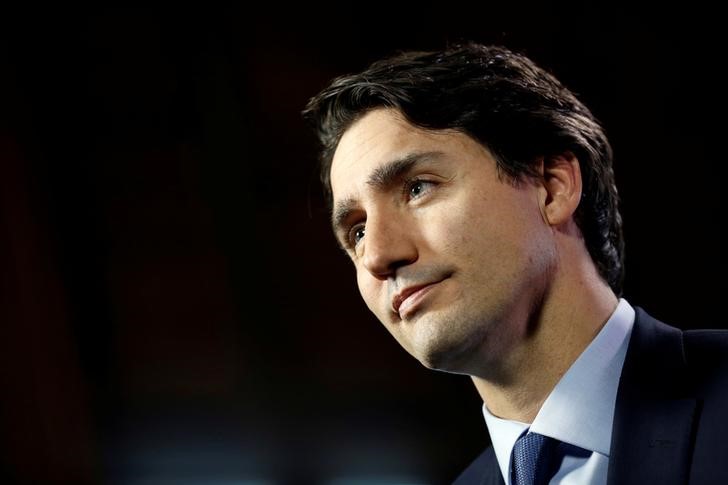(Adds Canadian opposition on funeral)
TORONTO, Nov 27 (Reuters) - Canadian Prime Minister Justin Trudeau, criticized for fondly remembering Fidel Castro without mention of his human rights record, defended his comments on Sunday and said the late Cuban leader had been a dictator.
Trudeau sparked fury and online mockery after he referred to Castro as a "remarkable leader" and expressed his sorrow at the Friday death of "Cuba's longest serving president". were quick to point out that Castro suppressed dissent and there was no option for other leadership on the island nation under his regime.
On Sunday, Trudeau said the statement was simply meant "to recognize the passing of a former head of state" of a country that Canada had longstanding ties with, and not to gloss over unflattering history.
"The fact is Fidel Castro had a deep and lasting impact on the Cuban people," Trudeau told reporters in a televised news conference at a Madagascar Francophonie summit.
"He certainly was a polarizing figure and there certainly were significant concerns around human rights, that's something I'm open about and that I've highlighted."
Trudeau said he had raised the issue of human rights during an official visit to Cuba earlier this month.
Asked whether he thought Castro was a dictator, Trudeau said: "Yes."
Some Conservative opposition lawmakers on Sunday urged Trudeau to boycott Castro's funeral while other contenders for the Conservative's leadership criticized his comments.
The prime minister's office said no decision had yet been made on who would be representing Canada at the funeral.
Castro was an honorary pallbearer at the 2000 funeral of Trudeau's father, former Canadian Prime Minister Pierre Elliot Trudeau, who was the first NATO leader to visit Cuba back in 1976.
Trudeau's initial statement, which was markedly more positive than most Western leaders, sparked a backlash on Saturday, especially among some U.S. Republicans and Cuban exiles in the United States.
Canada has long been one of Cuba's closest western allies, maintaining ties after its 1959 revolution.
During his November visit, Trudeau said that Canada would maintain its relationship with Cuba even if that put it at odds with U.S. President-elect Donald Trump, who has threatened to reverse the U.S.-Cuban detente.
